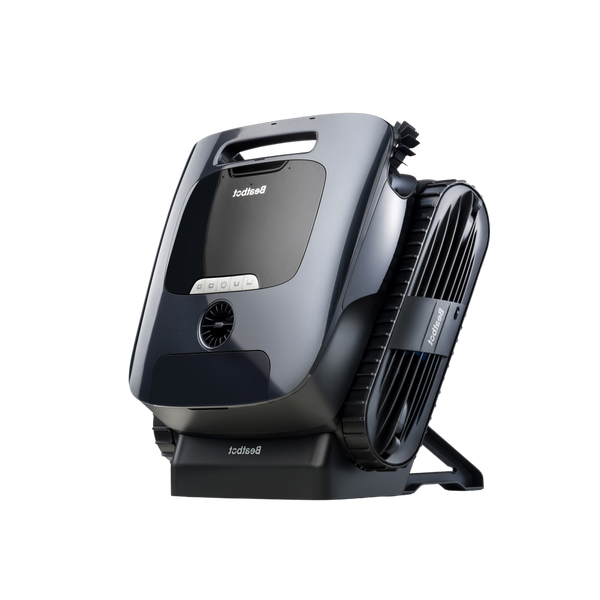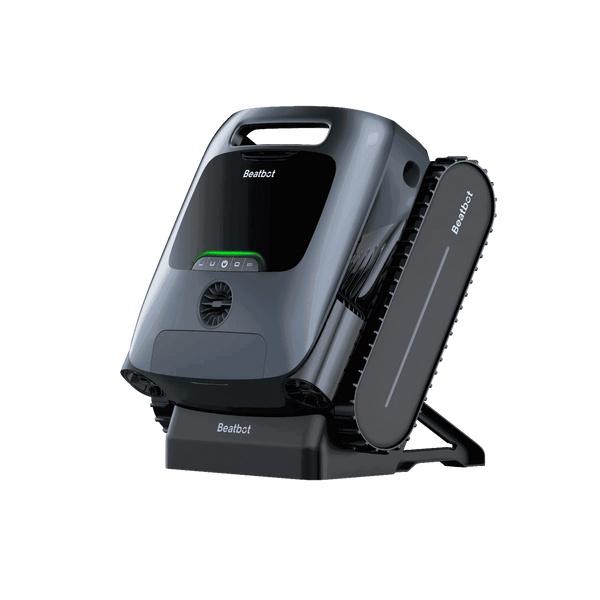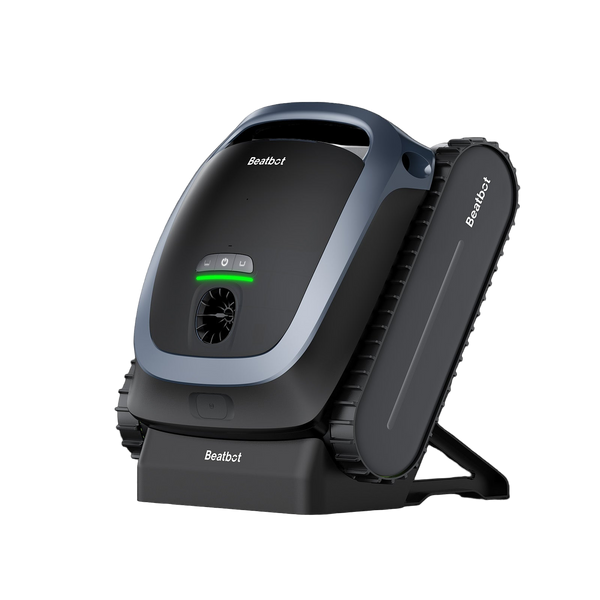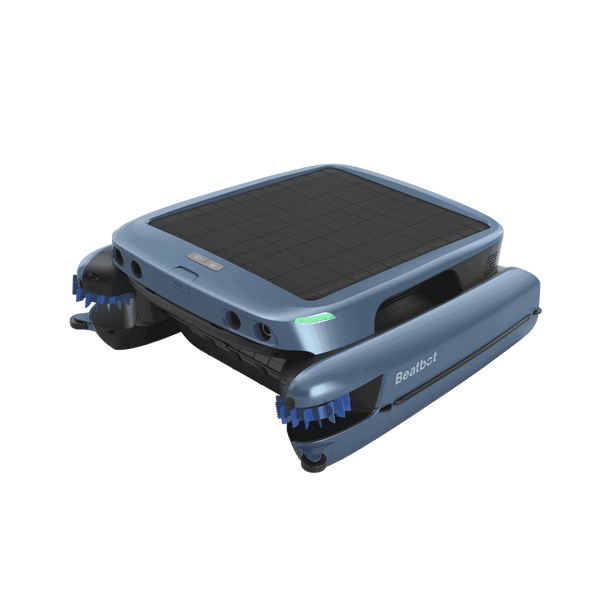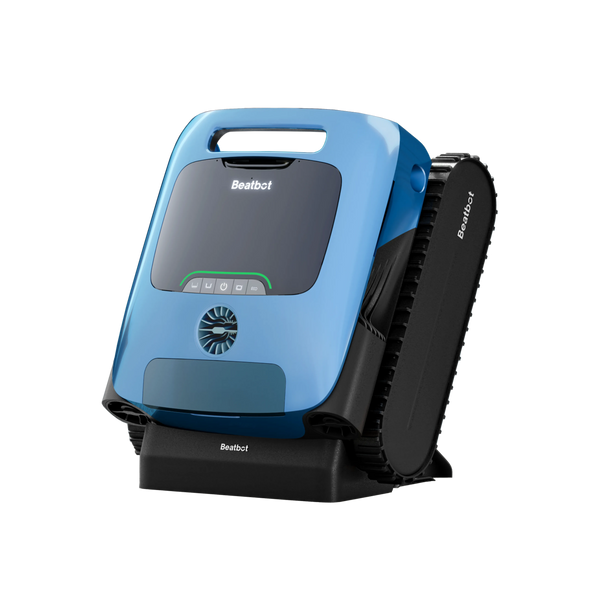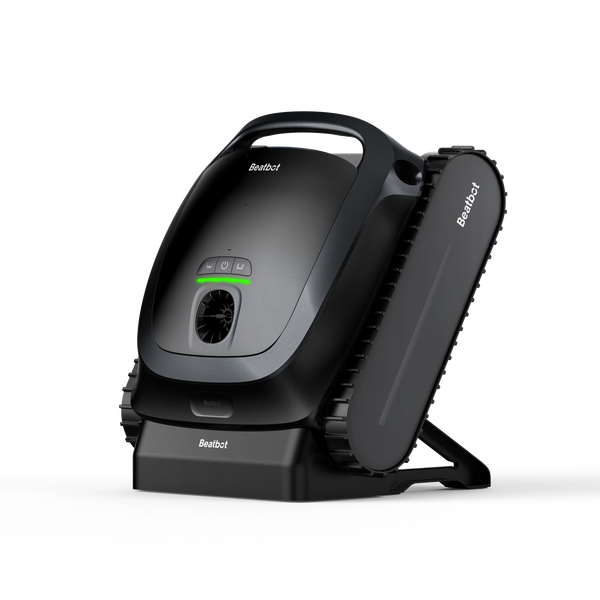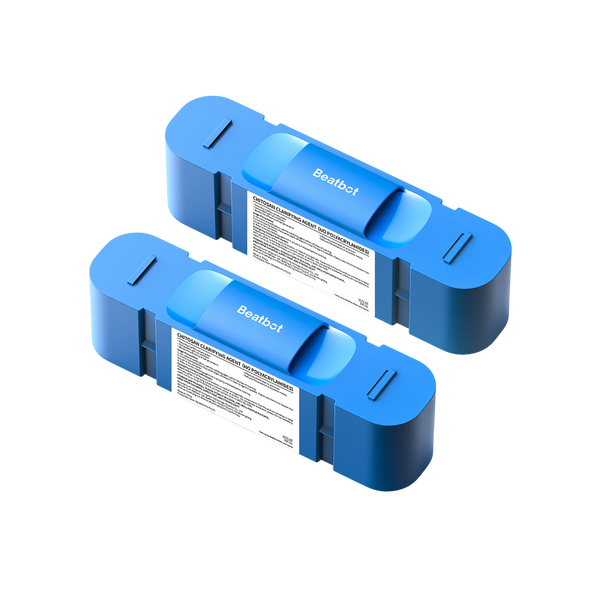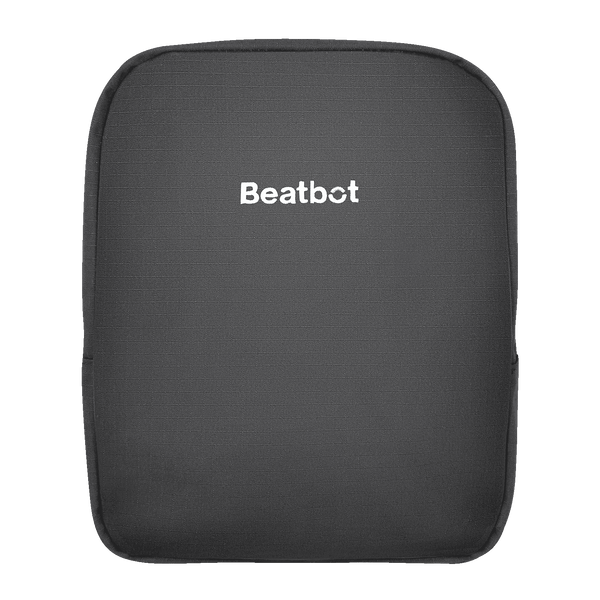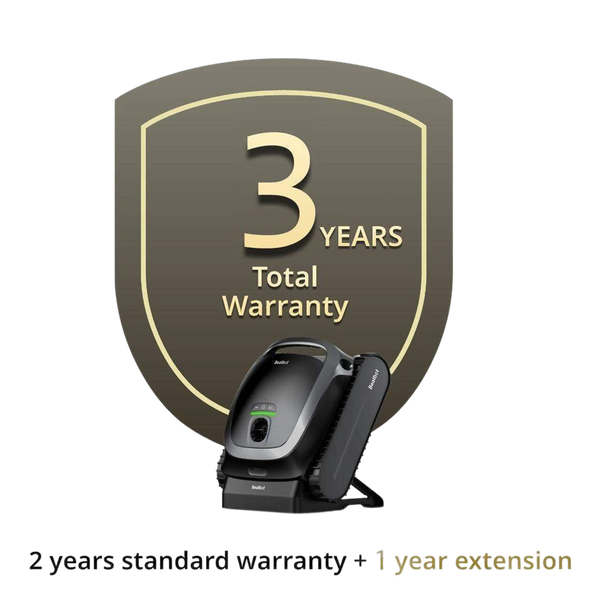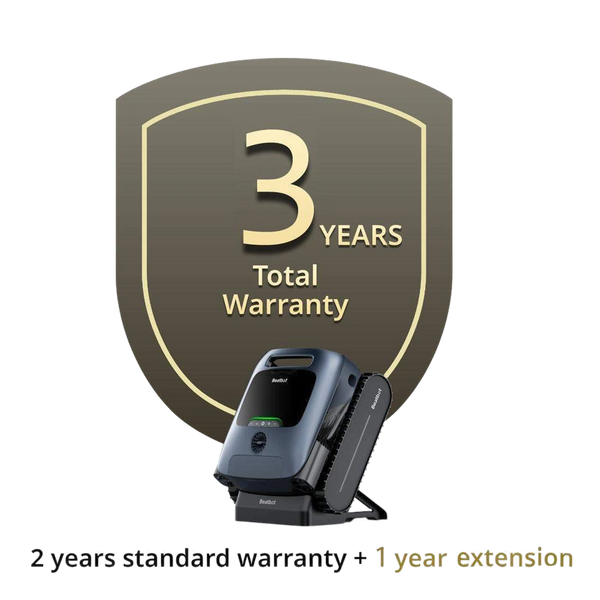Above Ground to Inground: Can Pumps Make the Leap?
In answering the question, can you use an above ground pool pump for an inground pool, you must consider the configuration of the pump and signing up the flow rate and plumbing system matched to the pool. Deep dive analysis below on if above ground pool pumps can work for inground pools and if so, how.
Table of contents

Understanding How a Pool Pump Works
Before evaluating the compatibility of above-ground pool pumps for inground pools, it's essential to understand how a pool pump operates. At its core, a pool pump functions through a straightforward yet efficient mechanism. Water from your pool is drawn into the pump via the skimmer and main drain, propelled by the impeller's spinning motion. This impeller, akin to an inverted blade, generates a potent suction force that pulls water into the pump's housing.
Components of a Pool Pump
To grasp the operation fully, let's break down the main components of a pool pump:
Impeller
The impeller is the core part of the centrifugal pump. It takes water from the pool and throws it out, functioning at high speed and output force.
Pump Discharge
The discharge function of the pump works like a volute, directing the water flow. It guides all the water to the outlet pipe after being expelled from the impeller.
Motor
Acting as the power source of the pool pump, the motor drives the impeller to rotate, facilitating the movement of water.
Shaft
Connecting the center of the impeller to the motor, the shaft transmits power to enhance rotation.
Housing
The housing seals parts to protect the motor and other internal components by keeping water and debris from reaching the pump's interior.
Understanding these components and their functions helps in assessing whether an above-ground pool pump can be adapted for an inground pool setup, ensuring compatibility with the flow rate and plumbing system.
Components of a Pool Pump
Here are the main components of a pool pump:
Impeller
Impeller is the core part of centrifugal pump, they take water from the pool and throw it out. They are high speed and high output force component.
Pump Discharge
The discharge function of the pump works like a volute that directs the water flow — it should guide all the water to the outlet pipe after being expelled from the impeller.
Motor
As the power source of the pool pump, the motor drives the power source, causing the impeller to rotate.
Shaft
It connects the center of the impeller to the motor, transmitting its power to enhance rotation.
Housing
Seals parts to keep water and debris from reaching the interior of the pump to protect the motor and other internal components.
Functions of a Pool Pump
Some of the important purposes of a pool pump are the following:
Uniform Spread of Chemicals
It spreads disinfectants, algaecides and other chemical agents evenly across the puddle, killing bacteria and algae.
Water Temperature Regulation
In the case of heated pools, circulation pumps can collaborate with heating systems to maintain the water temperature at a comfortable level for swimming.
Decrease in Maintenance Cost
Proper water circulation can help you keep your pool water for a long time, which can reduce your maintenance costs.This circulation helps in bringing the impurities and pollutants present in the pool water to the filtration system for treatment and keeps the water neat and clean, thereby establishing maintenance of water hygiene.
Distinctions Between Above-Ground Pool Pumps and In-Ground Pool Pumps
Above-ground vs in-ground pool pumps differ mainly in terms of design and where they are used:
Where to Install:
Above-ground pool pumps are generally installed above the ground, whereas in-ground pool pumps are installed below the ground (or sometimes in the water).
Structural design:
As in-ground pool pumps are immersed in chlorinated or chemically-treated water, so they may need improved anti-corrosive property than pool pumps used for above ground pools.
Power and Flow Rate:
In-ground pool pumps typically have higher needs for power and flow rates compared to above-ground types due to their larger volume and longer running times.
Maintenance & Noise :
Since they are installed within the ground, in-ground pumps might require more strict noise management and might be less user-friendly for maintenance purposes compared to above-ground pumps.

Are Above-Ground pool pumps suitable for In-Ground Pools?
Now that we understand the reasoning, in answer to whether or not an above-ground pool pump is used for an in-ground pool, it depends on the power of the pump, the flowrate needed, and whether or not the pump can be plumbed into the pool system. Here is your analysis of if, and how, above-ground pool pumps can work for in-ground pools.
Power and Flow Rate Specification
Because in-ground pools contain more water, they usually require stronger pumps and need to run for longer periods. In-ground pool pumps range from 0.75 HP to 3 HP or more (where larger up to 3 HP motors are available if the pool is larger or bigger than usual). Above-ground pumps, in comparison, are smaller and less powerful, typically between 0.5 HP to 2 HP.
Self-Priming vs Manual Priming
An equally important distinction is the priming process. Most in-ground pumps are self-priming and can also lift water vertically, as most of the pump is located above the water level. But above-ground pumps need to be primed by hand and below the water line, where they offer flooded suction. The difference in priming methods means that this pump might not be as effective if you have an in-ground pool arrangement.
Compatibility and Plumbing
Its important to note that not all pumps are compatible with existing plumbing systems. In ground pool systems are of an integral design while above ground ones may require different fittings or adapters for proper set up. You need to make sure that the connection is smooth and leak-free, which ensures maximum water travel with minimum maintenance & repairs.
Energy Efficiency
For inground and above-ground pool pumps, variable speed or dual-speed models will vary the speed of the pump to the desired flow and save energy. If you decide to use an above-ground pump for an in-ground pool, make sure it has energy-efficient features to keep operating costs down.
Horsepower Considerations
Horsepower is one of the most influential factors when it comes to energy efficiency, impeller performance, water flow rate and indicating how well water will circulate in the pool system. A pump with more horsepower is able to give you a greater amount of water flow that is essential in pools with a lot of water features or with a large body of water. But, if the horsepower of the pump is low, the water flow cannot be maintained in an in-ground pool.
The Importance of Filter Compatibility with Your Pool Pump
Choosing the right pump and filter combination for your pool is crucial. Think of them as dance partners—their synergy determines the quality of your pool's water and the frequency of your maintenance efforts.
Why Compatibility Matters
Optimal Performance: Matching the flow rate and connection size between your pump and filter is essential. If the flow rate of the pump is too high for the filter, it can lead to inefficiencies or even damage, resulting in cloudy water or increased debris.
Maintenance Efficiency: A well-paired system operates smoothly, reducing the amount of time spent on maintenance. When your pump and filter are in harmony, routine tasks become simpler, allowing you more time to enjoy your pool.
Longevity of Equipment: Ensuring compatibility helps prevent wear and tear on your pool components. Mismatched equipment can lead to premature failures, costing you more in repairs and replacements over time.
What to Consider
- Flow Rate: Check the gallons per minute (GPM) rating. Your pump's GPM should align with what the filter can handle.
- Connection Size: Ensure that the hose fittings and other connections match to avoid leaks and inefficiency.
In conclusion, the seamless performance of your pool's pump and filter setup is fundamental. By ensuring compatibility, you not only enhance the cleanliness of your pool water but also extend the life of your investment, reducing overall costs and effort.
So, Can Above Ground Pool Pumps Be Used for Inground Pools?
Answer:
It is possible to utilize an above-ground pool pump for an in-ground pool, but make sure to use a pump with enough horsepower and flow rate, as well as being plumbed correctly, as in, having pipes that fit it, as well as specs on the plumbing system, and make sure it is energy-efficient. It is also important to take into account that the self-priming is mostly appropriate for in-ground pools. If the pump can turnover the entire water within 8-10 hours which is about the same for the flow rate of an above-ground pool filter, then an above ground pool pump is sometimes used. The honest answer is that an above-ground pump can work in a pinch, but will do better than an in-ground pump for performance and durability.
Understanding the Differences: Single-Speed vs. Variable-Speed Pool Pumps
When considering pool pumps, it's essential to understand the differences between single-speed and variable-speed options. Each type has its unique advantages and potential drawbacks, and choosing the right one can affect both performance and cost-efficiency.
Single-Speed Pool Pumps
Single-speed pumps are the more traditional choice. They operate at a consistent speed, which means they run at full throttle every time they are used. This can be advantageous if cost is your primary concern, as these pumps typically have a lower initial purchase price. However, their efficiency is limited because they consume a significant amount of energy regardless of the actual demand.
Pros:
- Lower Initial Cost: Typically less expensive to buy upfront.
- Simple Operation: Easy to install and use with basic operation.
Cons:
- Higher Energy Consumption: They operate at full speed continuously, which can lead to higher electricity bills.
- Louder Operation: Often noisier due to constant high-speed running.
Variable-Speed Pool Pumps
In contrast, variable-speed pumps bring a modern twist to pool maintenance with adjustable speed controls. This adaptability allows them to match the pump’s speed to your pool’s specific needs, which can lead to substantial energy savings over time.
Pros:
- Energy-Efficient: By adjusting speeds according to the required task, these pumps use less electricity.
- Quieter Performance: Equipped with advanced motors, they produce less noise compared to their single-speed counterparts.
- Long-term Savings: Although they involve a higher initial expense, the reduction in operating costs can make them more economical in the long run.
Cons:
- Higher Upfront Cost: More expensive to purchase and install initially.
- Complex Installation: May require professional setup due to their advanced technology.
Conclusion
The choice between single-speed and variable-speed pool pumps depends largely on your budget and energy efficiency preferences. While single-speed models may attract those looking for a bargain, variable-speed pumps offer a compelling option for those seeking long-term savings and environmental stewardship. Ultimately, understanding how each type aligns with your needs will guide you to the perfect solution for your pool.
When choosing a pool pump, it's crucial to balance your budget without sacrificing quality. Here's how you can achieve that:
Evaluate Your Budget
Start by determining how much you're willing to spend. This helps narrow down your options and guides you toward pumps that fit within your financial range.
Consider Energy Efficiency
Opt for an energy-efficient model. While these pumps might have a higher initial cost, they consume less power, leading to lower energy bills over time. Brands like Hayward and Pentair offer energy-efficient options that can result in considerable savings in the long run.
Prioritize Essential Features
Identify what features are most important for your pool. Do you need a pump with a timer or variable speeds? Focusing on must-have features allows you to allocate your budget more effectively.
Compare Initial Costs vs. Long-term Savings
A lower-priced pump might seem appealing, but compare it against potential long-term savings in energy and maintenance. Calculating total cost over time often reveals that investing slightly more upfront leads to lower expenses overall.
Seek Out Deals and Warranties
Look for discounts or seasonal sales to get a better deal on your purchase. Also, consider pumps with solid warranties to protect your investment.
Balancing cost with quality ensures that your pool pump not only meets your needs but also keeps your financial plan in check.
Relative Blogs
About the author


